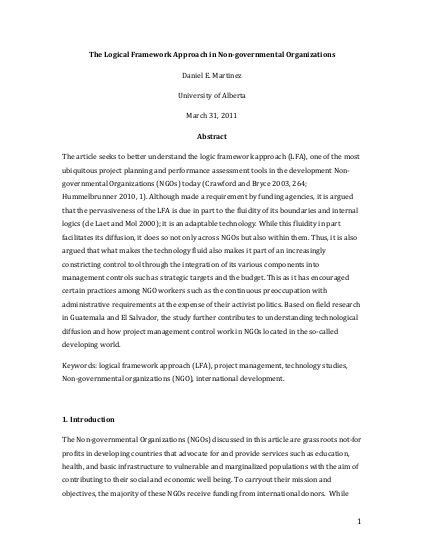
The article seeks to better understand the logic framework approach (LFA), one of the most ubiquitous project planning and performance assessment tools in the development Nongovernmental Organizations (NGOs) today (Crawford and Bryce 2003, 264; Hummelbrunner 2010, 1). Although made a requirement by funding agencies, it is argued that the pervasiveness of the LFA is due in part to the fluidity of its boundaries and internal logics (de Laet and Mol 2000); it is an adaptable technology. While this fluidity in part facilitates its diffusion, it does so not only across NGOs but also within them. Thus, it is also argued that what makes the technology fluid also makes it part of an increasingly constricting control tool through the integration of its various components into management controls such as strategic targets and the budget. This as it has encouraged certain practices among NGO workers such as the continuous preoccupation with administrative requirements at the expense of their activist politics. Based on field research in Guatemala and El Salvador, the study further contributes to understanding technological diffusion and how project management control work in NGOs located in the so-called developing world.